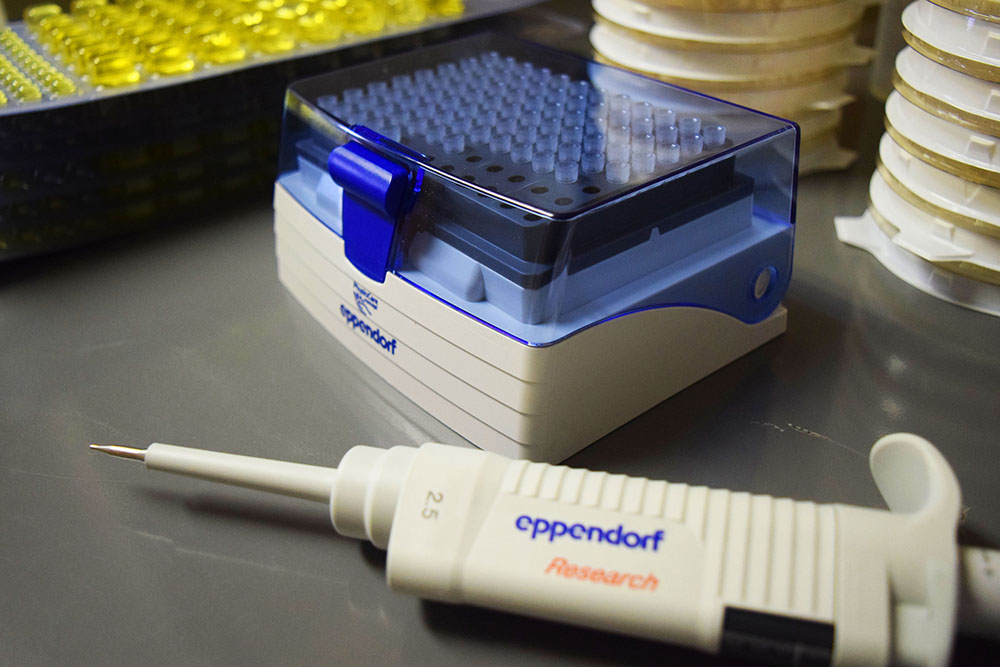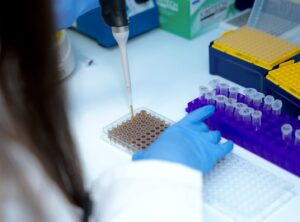 The commercial food industry is bound by strict testing guidelines put in place to reduce the risk of food-borne illness and other health hazards posed by microbial contamination. And while legislators are making medical marijuana increasingly legal throughout the United States, there is no federal regulation sanctioned by the USDA or FDA regarding microbial cannabis testing.
The commercial food industry is bound by strict testing guidelines put in place to reduce the risk of food-borne illness and other health hazards posed by microbial contamination. And while legislators are making medical marijuana increasingly legal throughout the United States, there is no federal regulation sanctioned by the USDA or FDA regarding microbial cannabis testing.
Modern Canna understands the importance of identifying microbial matter and pathogens on medical marijuana products. Using the latest laboratory techniques, we make sure all cannabis samples are carefully inspected for foreign matter, including fungi, insects and insect parts, bacterial contaminants, and other dangerous filth matter.
Although the cannabis plant has natural antibacterial properties that ward off certain microbial toxins, the growth, harvest, and processing stages present multiple opportunities for contamination. Fungal spores and bacterial pathogens can cause severe illness and infection when ingested or inhaled, which underscores the need for consistent microbial testing and overall cannabis testing within the cannabis industry.
What is Microbial Testing?
Before widespread distribution to the public, pharmaceuticals, cosmetics, food products, and water are all subject to microbiology tests. The facilities where these products are handled and processed are bound by rigorous best-safety practices designed to reduce the risk of contamination from pathogens, molds, and yeasts. Here at Modern Canna, we employ advanced microbial testing methods and procedures, including culture and surface sampling, aerobic plate counts (APC), and other technology that is capable of detecting pathogenic organisms and trace levels of mold on cannabis.
Research has demonstrated that microbial and bacterial contamination can pose serious health hazards at high levels of exposure. This risk is even more prevalent in people who are immunocompromised, which represents a significant portion of medical cannabis users.
Microbes We Test For
Medical cannabis patients should be able to trust that the edibles, extracts, tinctures, oils, and other goods they put in their bodies are safe and contaminant-free. For this reason, MCS performs broad-spectrum microbiology tests to evaluate product quality, including:
- Bacterial indicator tests – total coliforms, total aerobic bacteria and gram-negative bacteria
- Fungal indicator tests – yeast and mold levels
- Foreign matter inspection – fecal contamination, insects and animal parts
Filth Matter
The FDA defines filth as any kind of matter that should not be present in food or edible products, including rodent feces, insects, insect fragments, parasites, and other extraneous materials that may enter a product during processing and storing. Screening for filth matter in cannabis products requires UV light and microscopic analyses that isolate and identify potential health hazards.
Flotation techniques are utilized to isolate microscopic filth such as rodent hairs, insect parts, insect eggs, and mites that may contaminate cannabis and other agricultural crops.
Fungi
High levels of yeast and mold on cannabis flowers generally speak to poor drying or handling practices. A total yeast and mold test is an effective indicator of fungi, which is a common microbial growth on cannabis plants. Botrytis, also known as grey mold, is a necrotrophic fungus that often affects cannabis crops. While Botrytis is not considered a particular health concern, Aspergillus mold species are linked to severe allergic reactions as well as other complications in patients with immune system deficiencies.
At Modern Canna, we test for a variety of yeast, mold and fungi associated with cannabis plants, including:
- Sclerotinia Sclerotiorum
- Epicoccum Nigrum
- Cladosporium Herbarum
- Botrytis cinerea
- Aspergillus fumigatus
- Aspergillus flavus
- Aspergillus niger
- Aspergillus terreus
Bacterial Contamination
When ingested, significant levels of Salmonella and/or Escherichia Coli can cause grave illness marked by fever, abdominal cramps, nausea, vomiting, and diarrhea. The elderly and individuals with compromised immune systems are at increased risk for infection from these harmful bacteria, which can be present in raw and processed cannabis. By current U.S. food-grade standards, any product that tests over 100 CFU/gram of generic E. coli should be rejected. Higher levels of E.coli bacteria suggest improper growing and handling techniques as well as exposure to contaminated surfaces and fecal matter. All cannabis flowers and plants should undergo thorough aerobic microbial testing for Clostridium botulinum and Salmonella — bacterial pathogens that are associated with high mortality rates among seniors, cancer, and HIV positive patients.
Proper microbial screening and analysis is necessary to inform patients, distributors, health care providers, and growers about potentially dangerous pathogens, molds, bacteria, and filth matter detected in cannabis products. Without thorough testing, medical cannabis patients could be exposing themselves to hazardous contaminants and unnecessary health risks. For more information about microbial cannabis testing services in Florida, please contact Modern Canna here



